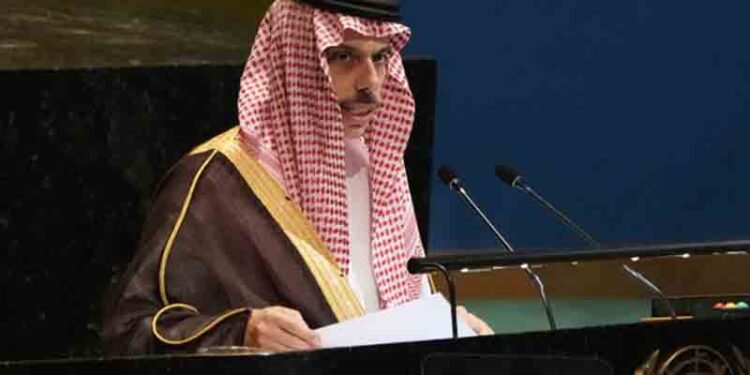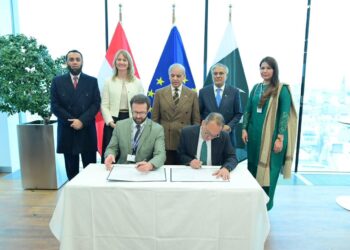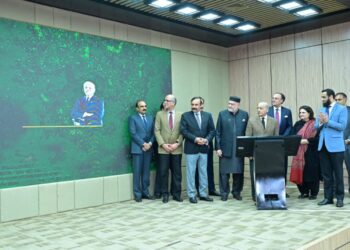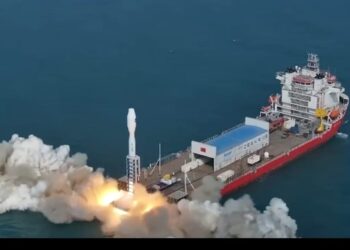New York — A high-profile international conference convened at the United Nations headquarters in New York, jointly hosted by Saudi Arabia and France, has underscored renewed global efforts toward a peaceful resolution of the Palestinian-Israeli conflict. With participation from numerous heads of state, diplomats, and international organizations, the conference focused on the revival of the two-state solution and urgent humanitarian aid for Gaza.
The pivotal event marks a significant diplomatic move aimed at breaking the stalemate in Middle Eastern peace negotiations and asserting Palestine’s right to statehood amid increasing international recognition.
Saudi Arabia’s Firm Stand: “No Relations with Israel Without a Palestinian State”
Speaking at the conference, Saudi Foreign Minister Prince Faisal bin Farhan laid out Saudi Arabia’s unequivocal stance. He declared that normalization of relations between the Kingdom and Israel is inextricably linked to the establishment of an independent Palestinian state.
“Saudi Arabia has made it very clear—relations with Israel are not possible until a Palestinian state is established,” said Prince Faisal.
He reiterated the importance of adhering to pre-1967 borders, with East Jerusalem as the capital of a future Palestinian state. The remarks reflect Saudi Arabia’s long-standing support for Palestinian sovereignty and human rights and serve as a direct response to recent regional and global normalization pressures.
The Two-State Solution: “Key to Lasting Peace”
Prince Faisal emphasized that the two-state solution remains the cornerstone of any viable peace in the Middle East. He described the idea not merely as a diplomatic proposal but as a moral obligation to restore justice and dignity to the Palestinian people.
“The dream of peace in the region cannot be realized without providing the legitimate and legal rights of the Palestinian people,” the minister said.
He welcomed French President Emmanuel Macron’s recent announcement of formally recognizing a Palestinian state in September 2025, calling it a “decisive milestone” in the international community’s growing support for Palestine.
France Backs Palestine: A Strong Message from Macron’s Government
Jean-Noël Barrot, French Foreign Minister and co-chair of the conference, echoed Saudi Arabia’s sentiment, stating that France is committed to supporting Palestinian self-determination.
“The Palestinian people have the right to sovereignty over their land. In the coming months, we expect more countries to join us in recognizing the State of Palestine,” he stated.
France has maintained its diplomatic push to bring peace to the region by supporting a multilateral framework and opposing unilateral actions, such as illegal Israeli settlements and forced evictions of Palestinians from occupied territories.
Barrot condemned the ongoing war in Gaza, calling the attacks on civilians and humanitarian infrastructure “unacceptable”, and urging an immediate ceasefire.
$300 Million in Aid: A Humanitarian Lifeline for Gaza
Recognizing the escalating humanitarian crisis in Gaza, Saudi Arabia and France jointly pledged $300 million in aid through the World Bank. This aid package aims to address urgent needs in food security, healthcare, clean water, and housing reconstruction in the war-ravaged enclave.
Prince Faisal urged the international community to mobilize resources and stand in solidarity with the Palestinian people, particularly in light of the ongoing Israeli military operations that have caused thousands of civilian casualties and displaced entire communities.
Memorandums of Understanding to Empower Palestinians
As part of a broader initiative to uplift Palestinian institutions and support their governance structures, the Saudi Foreign Minister also revealed that multiple Memorandums of Understanding (MoUs) would be signed with Palestinian entities during the conference. These MoUs aim to bolster institutional capacity, enhance public service delivery, and foster economic resilience in the West Bank and Gaza Strip.
The move is seen as a recognition of the Palestinian Authority’s recent reform efforts, particularly those related to transparency, anti-corruption measures, and the rule of law.
Palestinian Prime Minister: “A Historic Opportunity for Peace”
Palestinian Prime Minister Mohammed Mustafa, in his address, described the conference as a turning point in the Palestinian cause. He conveyed deep appreciation for the efforts of Saudi Arabia and France in bringing the issue to the forefront of global diplomacy.
“This conference sends a clear message of global support. It is a historic opportunity for peace, and we must not let it go to waste,” Mustafa said.
He called on the international community to hold Israel accountable for its violations of international law and urged an end to the blockade on Gaza, illegal settlements in the West Bank, and discriminatory policies against Palestinians.
Global Momentum for Palestinian Recognition Grows
The timing of the conference is particularly significant as more countries shift toward recognizing Palestine amid Israel’s controversial military campaign in Gaza, which has drawn widespread condemnation for the high civilian death toll and destruction of infrastructure.
Besides France, nations like Norway, Spain, Ireland, and Slovenia have recently either recognized Palestine or voiced their intentions to do so in the near future. The Palestinian leadership is now actively engaging with the European Union and African Union to garner further support.
International organizations, including the Arab League, Organization of Islamic Cooperation (OIC), and Non-Aligned Movement (NAM), also reiterated their support for Palestinian statehood at the conference.
Why the 1967 Borders Matter: A Recap for Context
The 1967 borders, also known as the pre-Six-Day War lines, refer to the armistice lines before Israel captured the West Bank, East Jerusalem, Gaza Strip, and the Golan Heights. Under international law and multiple United Nations resolutions (e.g., UN Security Council Resolutions 242 and 338), these areas are considered occupied territories, and any peace settlement must involve returning to these lines with mutually agreed land swaps.
Palestinians consider East Jerusalem as the future capital of their state, a claim supported by most countries before the U.S. administration under Donald Trump unilaterally recognized Jerusalem as Israel’s capital in 2017, shifting decades of international consensus.
Gaza: A Worsening Humanitarian Crisis
As the war in Gaza enters another devastating phase, the need for diplomatic solutions is more urgent than ever. The United Nations Office for the Coordination of Humanitarian Affairs (OCHA) estimates that over 80% of Gaza’s population has been displaced, and more than 35,000 people have died, many of them children and women.
Hospitals are overwhelmed, clean water is scarce, and entire neighborhoods have been flattened. The conference, therefore, was not just a forum for high-level diplomacy—it was a desperate call for immediate humanitarian intervention.
A Path Forward: International Cooperation is Key
The conference ended with calls for resumption of meaningful peace negotiations under international supervision, with emphasis on:
- Immediate ceasefire and humanitarian access in Gaza
- Recognition of Palestine as a sovereign state
- Adherence to international law and UN resolutions
- A roadmap for economic development and institutional support in Palestinian territories
- Accountability for war crimes and civilian harm
With diplomatic momentum now seemingly building, the Saudi-French-led initiative could pave the way for renewed global cooperation aimed at ending decades of conflict in the Holy Land.
Conclusion: Hope for Peace Amid Turmoil
The international conference at the UN, spearheaded by Saudi Arabia and France, has injected fresh diplomatic energy into the long-stagnant Palestinian-Israeli peace process. Saudi Arabia’s message was clear and direct: “Talk to Palestine first, then Israel.” The Kingdom’s insistence on linking normalization with justice for Palestinians reflects not only its principled foreign policy but also growing global impatience with the status quo.
While challenges remain, particularly with ongoing violence and political fragmentation, the conference represents a rare moment of collective international unity on one of the most contentious issues in modern geopolitics. The world is watching—whether this momentum translates into real change remains to be seen.

























